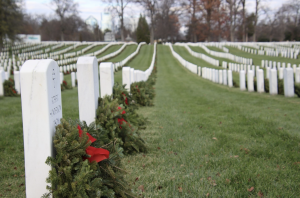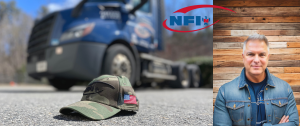
Did you know that, according to the U.S. Census Bureau, one out of every four veterans are truck drivers? Or that 10 percent of all truck drivers are veterans? If you have served our country and are looking to transition into a career in the truck driving industry, or if you are already a veteran of both fields, there are many programs and opportunities available to assist you along the way.
Each November, Veteran’s Day reminds us of the great dedication, commitment, and sacrifices made by the men and women who have served our country. Their bravery is why countless carriers, support groups, and government organizations work year round to provide resources for veterans entering the truck driving industry and support to those already hard at work. Keep reading to find out how these helpful resources could assist you and your loved ones.
Looking to Enter the Truck Driving Industry?
One of the most difficult parts about leaving a career in the military can be the transition into civilian life. Finding the right job that fits your qualifications, interests, and needs can feel impossible. Many veterans choose a career in the truck driving industry because of the job availability, flexible hours, and financial stability.
For veterans looking to enter into a career in transportation, there are many resources and organizations that can help you waive fees, exempt you from certain requirements, and provide resources for networking and finding the perfect job.
The Trucking Action Plan to Strengthen America’s Workforce was launched in 2021 by President Biden with the goal of making it easier for veterans to enter and adjust to the trucking industry. This program offers a wealth of opportunities in addition to the benefits already offered by the longstanding GI Bill.
If you’re looking for educational instruction or to connect with employers and field experts, the Department of Labor’s Transition Assistance Program (TAP) is a great place to start. TAP provides education on workplace fundamentals, as well as other benefits for veterans such as: mentorships, job fairs, resume help, internships, and more!
Qualifying veterans who have experience operating large military vehicles are also able to waive the commercial driver’s license skills test. The FMCSA offers a waiver that allows veterans to forgo driving tests, as long as they are currently licensed to operate military motor vehicles and have done so in the last 12 months. Currently, this waiver is available in all states.
If this doesn’t apply to you, the Commercial Motor Vehicle (CMV) Operator Training Grant can also be used to pay for a trucking education program. This grant applies to all US Armed Forces members and their spouses.
Already a Truck Driver?
If you’re one of the thousands of veterans across the country who are already working hard in the truck driving industry, there are still many resources and organizations available to offer round the clock support.
Veterans In Trucking is a company that makes its mission to connect veterans with resources, career opportunities, and industry connections. It assists carriers in creating veteran-readiness programs and offers a platform to apply for job postings for carriers that value and support veteran drivers.
The company also provides support to veterans through life changing experiences, such as their current Mission Veteran Expedition to Vietnam, giving veterans of the Vietnam War a chance to return to the country and see it in a new light.
For those looking to honor fellow or fallen veterans, organizations such as Wreaths Across America offer chances to show your support. Wreaths Across America recognizes and honors fallen soldiers and veterans by placing wreaths on gravestones across the country every holiday season.

On Saturday, December 16, 2023, more than 2 million volunteers and supporters will honor fallen veterans at national cemeteries and more than 4,000 locations nationwide. If you’d like to participate, it’s not too late. There are a number of ways you can be a part of this mission:
- Truckers can volunteer to haul loads – just scroll down the page and click “Volunteer for Trucking” to fill out the form.
- Volunteer to place wreaths – just click on the “Volunteer” button to find a participating cemetary near you and fill out the form.
- Sponsor a wreath – just click on the “Sponsor Wreaths” button and make your selection. You can also sponsor a specific cemetary or local sponsorship group.
- Donate to the cause – donate monetarily towards the transportation fund. This fund helps provide fuel assistance to make sure all the wreaths get to the final resting place of our heros.
You should never feel alone as a veteran in the truck driving industry. Many carriers offer support that can make a difference in the lives of you and your loved ones. Organizations and companies across the country also make it their mission to offer resources and opportunities that are always available.
If you’ve worked with a great organization for veteran truck drivers or have any stories to share, please reach out to us on our social media!



